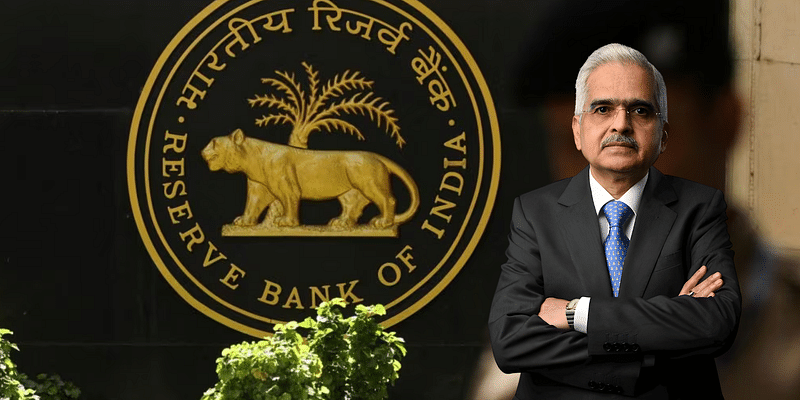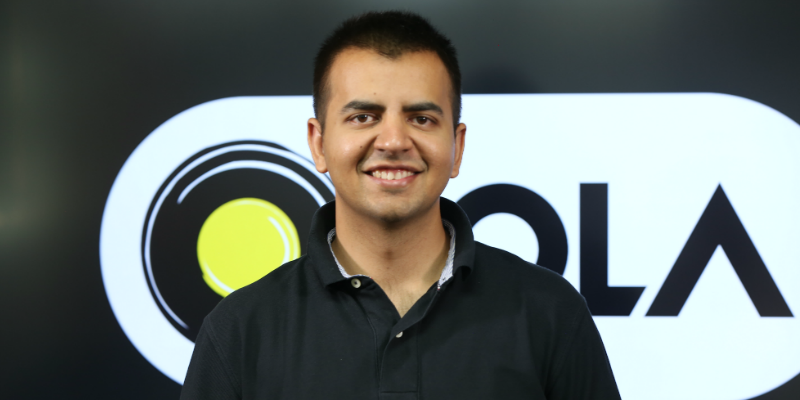The man who manages your customer in the mobile world
It is not often that you meet someone who looks at technology as a tool to make an impact on customers and in turn bring returns to business decisions. It is unfortunate that most of the business world puts customers second, but spend enormous amounts of money in acquiring them. The world of IT is not about information capture, it is about the “machine” learning continuously to understand the queries of clients or consumers – of the enterprise – when a transaction is made on the smart phone. Co-founder of Helpshift Abinash Tripathy is a technology proponent and believes that it can improve lives. But, he is vociferously against technology that focuses on trading – like ecommerce businesses that sell on discounts to capture consumer eye-balls. He believes customer service is the lifeline of every organisation, and adds that only technology can engage customers effectively in a world of devices.
Abinash is amazed at how organisations ignore customer support – on mobile applications – even though every organisation claims that it has the best-in-class customer engagement platform. He is an outspoken person who does not hide his animosity over businesses that offer below par technology platforms. He is inspired by the likes of Elon Musk and Jeff Bezos and also by the 20th century existential philosophy. Founded in 2012, Helpshift focuses on mobile-based customer engagement and handles over a billion devices. As a leading technologist, Abinash has a vision that Indians can build great product companies provided the government and telecom operators figure out a way to offer free internet for students. Here are the excerpts of his interview where he talks about the evolution of technology and the future of mankind:

1.Why do you think India does not figure in the list of top app economy, which is a $30 billion industry?
AT: It pains me that we have technology focused on selling retail products to consumers. We are a nation of shop keepers, and we seem to understand technology that is catered around trading. There is no deep technology business coming out of here. That said, India has the engineering skills to build technologies like machine learning and artificial intelligence. Algorithms are going to be the future of the world. India needs the next generation of entrepreneurs who are bold enough to chase this dream. We all harp about Make-in-India, but we are making technology that helps trading. Every app business out there focus only on selling retail products or making bill payments. Ours is a “Banya” or “Trader” world. Some of our entrepreneurs should learn from Amazon as it is truly a complete business. It is a great technology company, has a huge selection of inventory, and finally it has customer service that makes its business unbeatable. India is going through an evolution and it is some cycles away to reach that stage of building great products. We are like what Israel was in the 70s, which was a country in the services business. Today some of the best product companies or deep tech companies come from Israel. There is no ecosystem focussed on core technology. No wonder we do not have great ideas in the B2C and B2B world even with a smart bunch of people around. The problem is in the infrastructure in the form of the internet. We say that there is growing penetration. But, where is the next set of great ideas? We are stuck at building plain trading or delivery services in the form of apps.
2. How can we build a technology ecosystem that is enviable the world over?
AT. The world over the one device that everyone will carry is the mobile. India is no different because consumption will happen through apps. However, there is a larger thing that appalls me and it is important that we tend to it quickly, which is the fact that the internet in India is expensive and there is no way students can build technology that means something. Let me qualify this because the telecom providers can say that the cost of internet in India is one of the lowest in the world. Firstly, the speeds are lowest. Secondly, there is no free internet in universities. Countries like the USA built fibre network to serve universities and gave it for free to aid research in the 90s. The research on the browser happened because of this platform. Netscape, if you remember, was born out of university. The network evolution happened because of students, researchers, the government and corporate. DARPA and the National Science Foundation were the foundation on which a lot of technology businesses were born. In India, we need this to happen otherwise the state-of-the-internet will be disappointing. With bad networks apps are created to work on low speeds, which are not the same as the experience that one would enjoy on apps that work on faster networks. Startups and consumers need fast internet speeds. Businesses need startups to build technology to that have world class experiences. Is this happening in India today? The answer is, no! Startups are only adding customers, but they are not building great technology. India needs people who can build algorithms for the world. That is what Make-in-India is. For example, Freshdesk is one company – within their target market of SMBs or the long tail of businesses – that is building products for the globe from India. Our company does this with a unique business model. We target the top companies in the world that want to move mobile and are looking at technology with mobile as the primary device for business strategy. Flipkart had the guts to go app-only, which was focused around technology to target consumer. But an entire slew of naysayers made it renege on that promise and has its website running too. It is strange because I see reports out that more than 80 per cent of the transactions happen on the mobile. It makes me wonder why people cannot improve the network infrastructure to better smart phone-based experiences. It takes a lot of guts to build a technology road map.
3. How do you build a great product company?
AT: I see engineers outsourcing their product development and I feel it’s a bad strategy towards building a company. To build a lasting product company you got to do it yourself. Salesforce is the leader in the $30 billion CRM market and they did it by themselves. To build a great company, I go back to the Amazon example. But the way we think about it is; create a product for a new category and be a king in that domain. If you are building a company and the target is to reach large businesses the founder should be closing deals. He also needs professional sales people. A lot of product startups use digital marketing, but such companies are chasing small businesses. If the product is driven at large corporate then the founder must have great marketing skills. The average contract value or AVC is very high in our case and SalesForce is the bar. They have more than 150,000 customers and are a $6 billion company with a huge market cap. I sometimes see technology companies that do not raise money or do not go public and they claim to be big businesses when they speak to the media. I am sceptical of such companies because you cannot verify their claims. In the US, there is a large CRM company that claims this, and it is worrying.
4. Today, the interplay of the terms “machine-learning” and “artificial-intelligence” is used loosely, what is it really and the opportunity that it presents?
AT: Think about sensors and the world of devices. These things are capturing data. The data are sitting in machines and these machines are being taught to understand the individual. Imagine the applications in a connected eco-system. The connected car is a great case in point. Wouldn’t it be great if you knew your car is going to break down one month before the incident really happened? Wouldn’t it be great if you know that you are going to have a heart condition before it happens? This will reduce the burden on unforeseen costs. The algorithms are doing this in the machine and human beings are teaching them. The research on artificial intelligence has been around for over 40 years. It has taken long for it to arrive, but it is no doubt that software is heading towards being extremely intelligent. It starts with machine-learning and ends up with artificial intelligence. Now there are two strands of thought here. The first school believes humans will evolve while machines end up doing all their work. We call this “singularity”, which means can think for themselves. The other school of thought, which is an argument from great tech leaders and scientists like Elon Musk and Stephen Hawking, say that machines are a danger if they can – in the future – view humans as inefficient. I am a fan of machines that learn and are self-correcting to help us better.
5. Is data privacy going to be the single most fear factor?
AT: I think this generation is sharing a lot more data for meaningful experience like Google and Facebook. As long as these corporations protect the data from being stolen, it is fine. I think data sharing is indeed a good thing in the world of devices. If I can know that there is a traffic jam or if I get an ad-served that is relevant to me, where is the harm in these things? Apple has protected its customer identity through legal means. Even the FBI is not able to get in to Apple’s data of its customers. To summarise this interview, the world is going to be driven by technology and we should focus on deep innovation. The opportunities to be investing in the future are with technology and devices. It is not in worrying about what apps work or what does not work. If we build great networks and let tens of million kids to start building on top of the network, then we will have great businesses disrupting the future.











